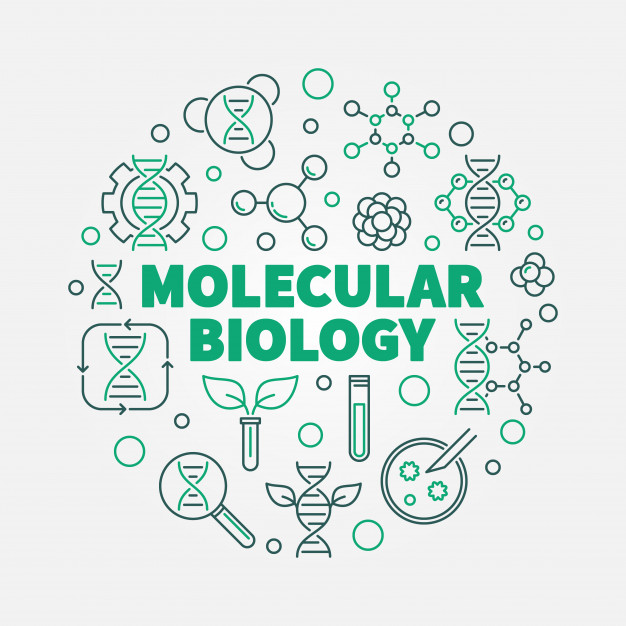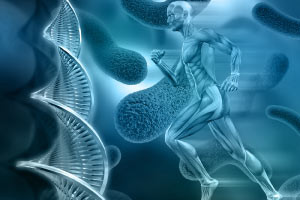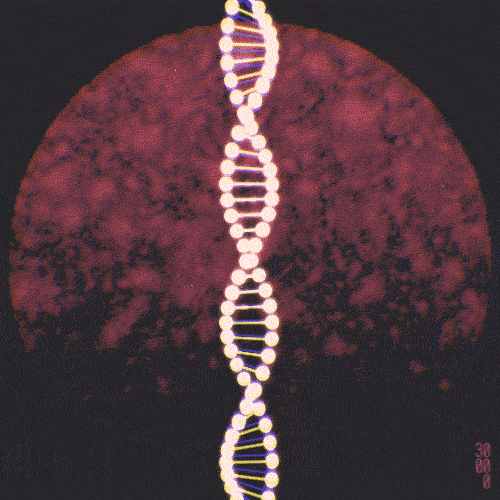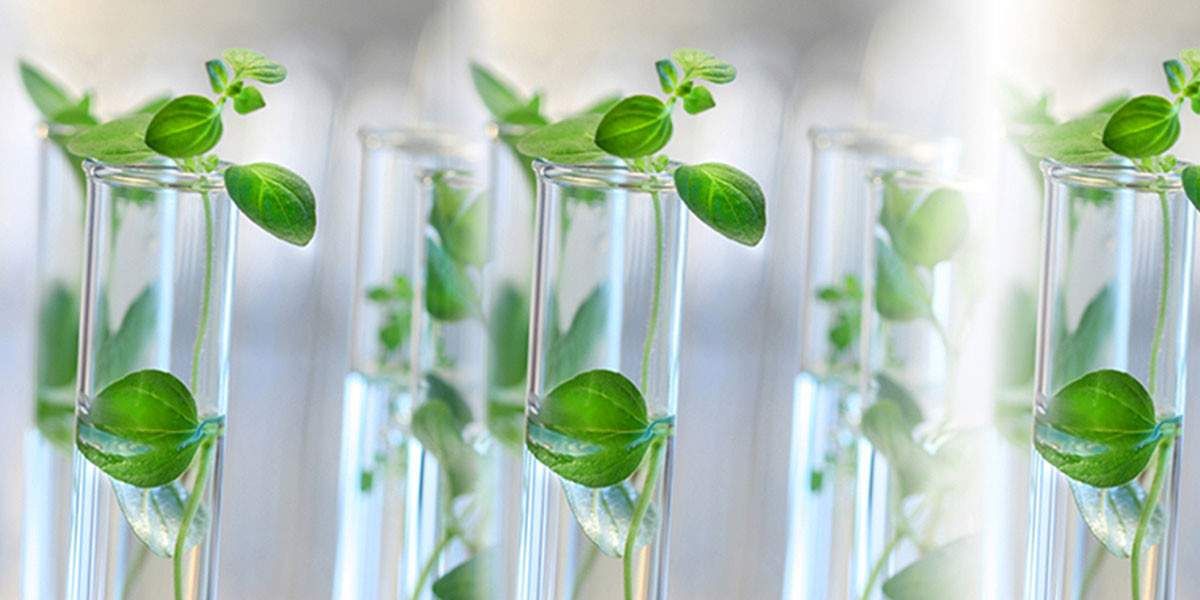Objective of Course:
The main objective of this course is to develop an understanding of gene expression and gene regulation, and the familiarization of students with the experimental approaches used in molecular biology.
Learning Outcomes:
On completion of the course the student will be able to:
CO1. Describe the relation between DNA, RNA and proteins.
CO2. Outline the basic steps involved in DNA replication, including major differences between eukaryotes and prokaryotes.
CO3. Explain the fundamental structure, properties and processes in which nucleic acids play a part.
CO4. Explain gene expression and the roles of the promoter, coding and termination sequences
CO5. Predict how an addition or deletion mutation in the promoter sequence of a gene would impact future transcription of that gene.
CO6. Name the enzymes, organelles and molecules involved in translation and describe the role of each.

- Teacher: VARALAKSHMI V
COURSE OBJECTIVE:
This course provides the key concepts which includes solvent extraction, Paper, Thin layer, Column, Ion exchange, HPLC, Gas chromatography techniques, colorimetry, UV Visible, IR spectroscopy, Electro analytical methods like potentiometry, voltammetry and bulk methods like conductometry.COURSE OUTCOMES:Students will be able to
CO1: Identify and assess the purity of compounds using TLC, IR, Gas chromatography
CO2: Acquire some technical knowledge and practical experience
CO3: Analyse and interpret the spectroscopic data
CO4: Construct electro chemical cell
CO5: Discuss the types of voltametric techniques
CO6: Explain the principle of potentiometry and conductometry- Teacher: T NAVYA KUMARI
Objective of Course:
This programme will give students a sound and broad background in Applied biochemistry. It will aim to provide training in the theoretical and practical aspects of Applied biochemistry and its applications.
Learning Outcomes:
On completion of the course the student will be able to:
CO1-Know the basic principles of the main biochemical methodologies used in the separation, identification, characterization and analysis of biomolecules.
CO2-Apply that basic understanding to the study of specific and more advanced topics in pure or applied life science disciplines
CO3-Design or evaluate experimental protocols used in biochemical research.
CO4- Investigate as to understanding the molecular basis of diseases.
CO5- Develop skills in the application and interpretation of a range of appropriate experimental techniques.
CO6 - Apply their knowledge and understanding in order to initiate and carry out an extended piece of work or project.
- Teacher: VARALAKSHMI V
COURSE OBJECTIVES:
I. In organic chemistry: This course is designed to provide the key concepts in inorganic chemistry which includes the Crystal field theory, magnetic and electronic spectra of coordination compounds, thermodynamic and kinetic stability of complexes, applications of coordination compounds in everyday life, structures of Boranes and carboranes.
II. Organic chemistry: The course is designed to provide the key concepts in organic chemistry which includes Preparative methods, physical and chemical properties of amines, diazonium salts, cyanides, iso cyanides and hetero cyclic compounds.
III. Physical chemistry: The course is designed to provide the basic concepts in physical chemistry which includes rate of reaction, factors influencing rate, derivations of equation for rate constants, kinetics of complex reactions, collision theory and transition state theory.
IV. General Chemistry: The course is designed to emphasise on Molecular spectroscopy and photo chemistry Which includes Microwave, IR, Electronic spectroscopy, laws of photo chemistry, Quantum yield, Jablonski diagram, Fluorescence and Phosphorescence.
COURSE OUTCOMES:
Students will be able to
CO1: Describe reaction rate and rate laws.
CO2: Analyse and interpret spectroscopic data.
CO3: Understand the splitting of d-orbitals in different fields.
CO4: Draw the structures of boranes and carboranes.
CO5: Learn the nomenclature of hetero cyclic compounds.
CO6: Draw the structures and explain the aromaticity.
- Teacher: T NAVYA KUMARI
Objective of Course :
The main objective of this course is to initiate the student in understanding the in vitro study of the biological properties that contribute to the prevention, diagnosis, prognosis and monitoring of diseases and disease states in humans
Learning Outcomes :
On completion of the course the student will be able to do the following:
CO1. Demonstrate a thorough understanding of the normal physiology of each organ system of the body.
CO2. Able to apply a thorough understanding of the basic physiologic concepts in clinical scenarios.
CO3. Demonstrate the ability to identify basic abnormal physiologic conditions and to describe their nature.
CO4. The knowledge of the mechanisms by which the human organism obtains and maintains the homeostasis at level of cell and tissue.
CO5. Relate laboratory results to clinical diagnosis and relationship to heart,liver, kidney and pancreas function.
CO6. Correlate laboratory test results with common diseases or conditions

- Teacher: Dr. PRATHYUSHA YAMARTHI
This
course is designed to make students understand the basic concepts of Information Technology.
- Teacher: APARNA VIJAYAN
Course Summary
Molecular biology explains about the molecular activity in biological species relating to the bio-molecular interactions in the cell including the interactions between the DNA, RNA, protein and biosynthesis as well as the regulation of these interactions. The r-DNA technology is the recombinant DNA technology used as the application tool in various agricultural as well as medicinal benefits by identifying and altering the genes with the help of various enzymatic and recombinant tools.
Course Outcomes
CO 1: Students will be able to understand about the basics of molecular biology.
CO 2: They would understand about the concepts related to the interactions of the bio-molecules.
CO 3: It will help them to understand the various principles and mechanism of interaction between DNA, RNA, Proteins and bio-molecules.
CO 4: It would help them to learn the smooth functioning of the biological system for understanding the basics concepts of central dogma and their functions
CO 5: Students will be able to understand the gene expression and regulation in Prokaryotes and Eukaryotes.
CO 6 Students will be able to explain the basics of r-DNA technology with the deep understanding of cloning and various enzymes involved in the reactions
CO 7: Students will be able to describe the basic concepts and application of r-DNA technology in agriculture and medicine.
CO 8: They would also learn about various tools used to understand the transfer of DNA and RNA molecules for studying their pattern for further analysis.

- Teacher: Dr. SRINATH NAGANATHAN
Objective of Course:
The objective of the course is to define the principles of plant biotechnology and how they highlight biological processes.
Learning Outcomes:
On completion of the course the student will be able to:
CO1-Develop fundamental knowledge in Plant Molecular Biotechnology and its application in laboratory and industry settings
CO2- Acquaint with principles, technical requirement, scientific and commercial applications in Plant Biotechnology.
CO3- Determine the factors influencing plant cell differentiation and thereby execute proper techniques/ procedures for the maintenance of sterile condition and proper plant growth.
CO4 - Use bioprocesses and possibilities of living organisms to create and produce specific products.
CO5- Explain how biotechnology is used for plant improvement and discuss the ethical implications of that use.
CO6 - Explain the basics of the physiological and molecular processes that occur during plant growth and development and during environmental adaptations

- Teacher: VARALAKSHMI V